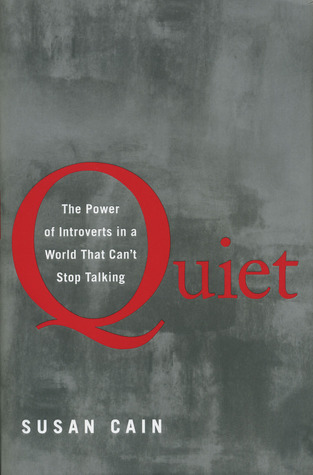Quiet Book Summary
The Power of Introverts in a World That Can't Stop Talking
TL;DR
In "Quiet: The Power of Introverts in a World That Can't Stop Talking," Susan Cain argues that society undervalues introverts, who contribute significantly to innovation and creativity. The book champions introversion, illustrating how introverts thrive and succeed.
What is Quiet about
"Quiet" explores the paradigm of introversion, challenging the prevailing Extrovert Ideal that dominates contemporary culture. Susan Cain delves into the characteristics of introverts, revealing their strengths such as deep thinking, creativity, and a preference for solitude over social interaction. Through interviews and anecdotes of notable introverts like Rosa Parks and Steve Wozniak, Cain illustrates how introverts have shaped society, often unnoticed. The book also provides practical advice for introverts on how to embrace their nature in a world that often values extroverted traits. Cain's work aims to shift perceptions and encourage both introverts and extroverts to appreciate the diversity of personality types.
Quiet 5 Key Takeaways
The Extrovert Ideal dominates society.
Cain discusses how the preference for extroverted traits has led to a systemic undervaluation of introverts, affecting workplaces, schools, and social interactions.
Introverts possess unique strengths.
The book highlights qualities such as reflective thinking, creativity, and the ability to listen well, which are often overlooked in extroverted-dominated environments.
Successful introverts exist in diverse fields.
Cain provides examples of accomplished introverts who have made significant contributions, illustrating that introversion can lead to remarkable achievements.
Introverts can thrive in an extroverted world.
The author offers strategies for introverts to navigate social situations and work environments, emphasizing the importance of self-acceptance.
Cultural bias against introversion affects development.
Cain argues that educational and corporate systems favor extroverted traits, which can hinder the potential of introverted individuals.
Top Quiet Quotes
- "There's zero correlation between being the best talker and having the best ideas."
- "Introverts are not anti-social; they are just more comfortable in quieter surroundings."
- "The key to unlocking the power of introverts is to understand that everyone has something valuable to contribute."
Who should read Quiet?
This book is ideal for anyone seeking to understand the dynamics of personality types, especially those who identify as introverts or work in environments that favor extroversion. Readers will gain insights into their traits, enhancing self-awareness and appreciation for diverse perspectives.
Quiet Best Reviews
- "A groundbreaking work that encourages a new understanding of introversion and its place in society." - The New York Times
- "Cain's research is thorough and compelling, making a strong case for the value of introverts." - Publishers Weekly
- "An essential read for anyone seeking to understand the dynamics of personality in the workplace and beyond." - Harvard Business Review
People also liked these summaries
Quiet FAQs
What is the main argument of "Quiet"?
The main argument of "Quiet" is that society undervalues introverts, who often possess unique strengths and capabilities that contribute significantly to innovation and creativity.
How can introverts thrive in extroverted environments?
Cain provides various strategies for introverts to navigate social and professional settings effectively, emphasizing self-acceptance and the importance of finding environments that honor their traits.


